1. La Bamba (1987)

La Bamba became a staple in households across the U.S. when it was released in 1987. The movie, based on the life of Ritchie Valens, an iconic Mexican-American rock ‘n’ roll star, gave families a glimpse into the struggles and triumphs of a young man trying to make a name for himself in the music world. With its unforgettable soundtrack and the portrayal of Valens’ rise to fame, La Bamba resonated with families who admired the way it captured the spirit of Latino culture. The film’s combination of drama, music, and family dynamics made it a perfect addition to Sunday dinner conversation according to New York Times.
One of the most iconic moments from the movie is the song “La Bamba,” which quickly became a household anthem. Many families found themselves singing along, whether at home or in the car. The movie not only brought attention to Ritchie Valens but also served as a reminder of the importance of family, perseverance, and staying true to one’s roots. For many, the film’s ability to blend humor, love, and tragedy created an emotional connection that made it a Sunday dinner favorite. It wasn’t just a movie; it was a celebration of Latino culture, inspiring generations to follow their dreams no matter the odds says Pitchfork.
2. Selena (1997)

When Selena hit theaters in 1997, it instantly became a cultural phenomenon. Starring Jennifer Lopez as the legendary Tejano singer Selena Quintanilla-Pérez, the film chronicled Selena’s rise to fame and her tragic death explains Biography. The movie captured the heart of Latino families everywhere, particularly those in Texas, as it depicted the story of a young woman from humble beginnings who went on to become a star. The scenes of Selena’s family supporting her dream, even as they faced adversity, became something that viewers could relate to, making it an essential film for family Sunday viewing.
What really made Selena memorable were the emotional performances, particularly Lopez’s portrayal of Selena. Her talent, charisma, and authenticity as a performer paid tribute to the real-life Selena, whose death had left a lasting void in the Latino music world. The movie’s soundtrack also played a huge role in its success, with songs like “Bidi Bidi Bom Bom” and “Como La Flor” becoming beloved classics in many homes. For families, watching Selena was more than just an entertainment experience—it was an emotional and celebratory way to honor the life of a beloved icon.
3. The Feast of the Goat (2005)

Adapted from the novel by Mario Vargas Llosa, The Feast of the Goat tells the chilling story of life under the brutal regime of Rafael Trujillo in the Dominican Republic. The film was significant because it introduced a darker, more political side to Latino cinema that many families were eager to discuss. Despite its heavy subject matter, the movie’s complex depiction of power, fear, and loyalty sparked important conversations around the dinner table about history, freedom, and the price of power says Variety.
The film’s portrayal of Trujillo’s reign and the lives of the characters caught in its grip is not only a history lesson but also an exploration of human emotions under oppressive circumstances. For families, it was a way to understand the resilience of the human spirit, even in the most brutal of times. While the content was undeniably intense, The Feast of the Goat became a film that many families turned to when they wanted to discuss serious issues surrounding politics, injustice, and human rights in a historical context. It became a poignant reminder of the struggles endured by many Latino communities throughout history.
4. Mi Familia (1995)
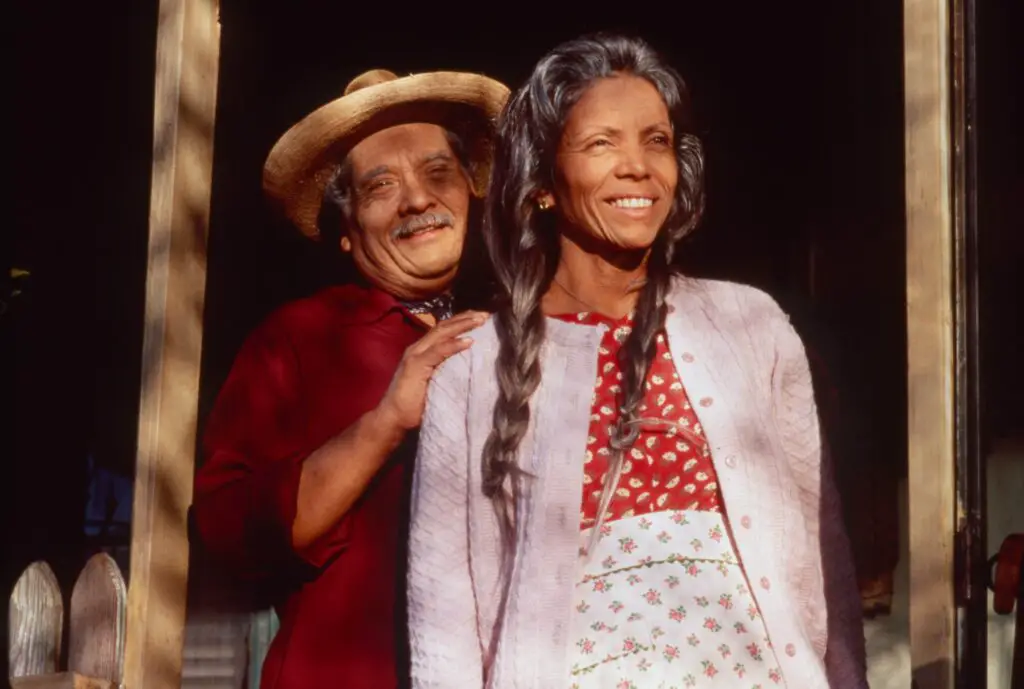
Mi Familia is a classic that delves deep into the immigrant experience, spanning several generations of a Mexican-American family living in Los Angeles. The film highlights the challenges and triumphs of the Sanchez family, whose journey reflects the broader Latino experience in the U.S. Families loved watching Mi Familia because it depicted the unity, love, and hardship that so many could relate to. The multi-generational approach allowed viewers to see the different stages of the immigrant experience through the eyes of both young and old characters says NPR.
The powerful performances, especially from the cast members like Edward James Olmos and Jennifer Lopez, helped to make this film even more impactful. Through scenes filled with humor, heartache, and joy, Mi Familia illustrated how strong family bonds can overcome almost any obstacle. The story resonated with so many Latino families because it showed their own struggles reflected on screen, whether it was adapting to a new culture or holding onto traditions. Watching this film at Sunday dinners became a tradition in many homes, as it sparked conversations about the importance of family, resilience, and the pursuit of the American Dream.
5. Coco (2017)

Disney’s Coco may be a more recent addition to the list, but it quickly became a modern classic for families. The film, which explores the Mexican holiday Día de los Muertos (Day of the Dead), follows young Miguel as he embarks on a journey through the Land of the Dead to discover his family’s history and legacy. For Latino families, Coco was a beautiful celebration of culture, music, and the importance of remembering ancestors. Its exploration of family and tradition resonated deeply, especially with children, making it a perfect choice for Sunday family movie night.
The visuals in Coco were stunning, and the movie’s soundtrack, particularly the song “Remember Me,” struck a chord with audiences around the world. For families, Coco became more than just a movie—it was a way to celebrate their own family traditions and histories. It opened up conversations about the importance of remembering loved ones who have passed and honoring their legacies. Its emotional depth and the universal themes of love, loss, and family made it a cherished film for generations, providing a cultural connection that many families carried with them long after the credits rolled.
6. La Misma Luna (2007)
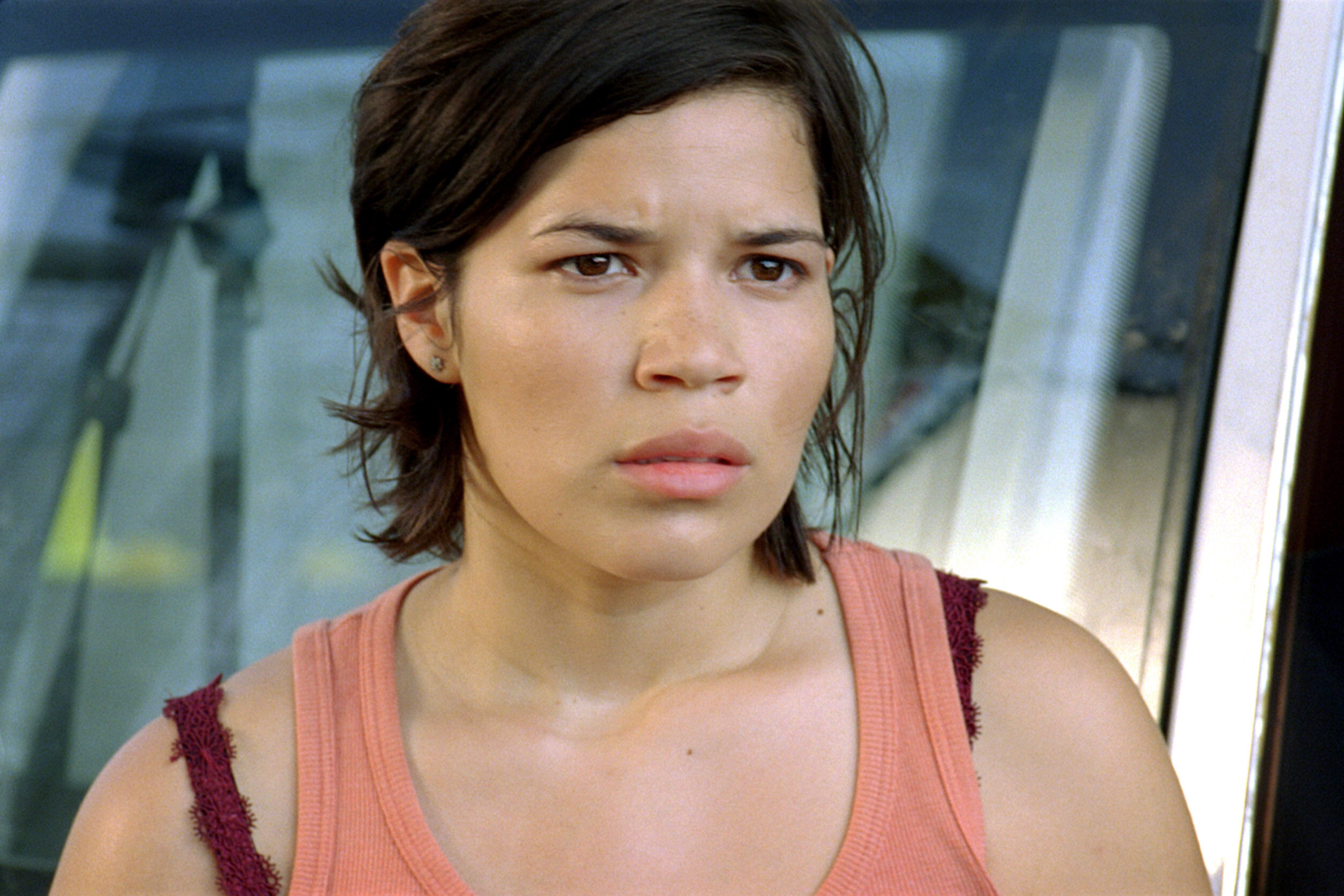
La Misma Luna (Under the Same Moon) tells the heartbreaking and hopeful story of a young boy named Carlitos, who embarks on a dangerous journey from Mexico to the United States to reunite with his mother. The film’s portrayal of the immigrant experience, particularly the bond between mother and child, struck a chord with many Latino families. The narrative, filled with raw emotion, helped open discussions on the complexities of immigration and the lengths to which parents will go for their children. It was a film that not only entertained but also educated and united families around a shared experience.
The film’s powerful performances, especially from the young actor who played Carlitos, created a sense of urgency and empathy for the character’s journey. As the film addressed real-world issues of family separation and the struggles of living in a foreign land, it became a talking point for families discussing the emotional toll of immigration. La Misma Luna became more than just a film about a young boy’s adventure—it was a conversation starter about what it means to be part of a family that spans borders and the sacrifices that come with pursuing a better life.
7. Y Tu Mamá También (2001)
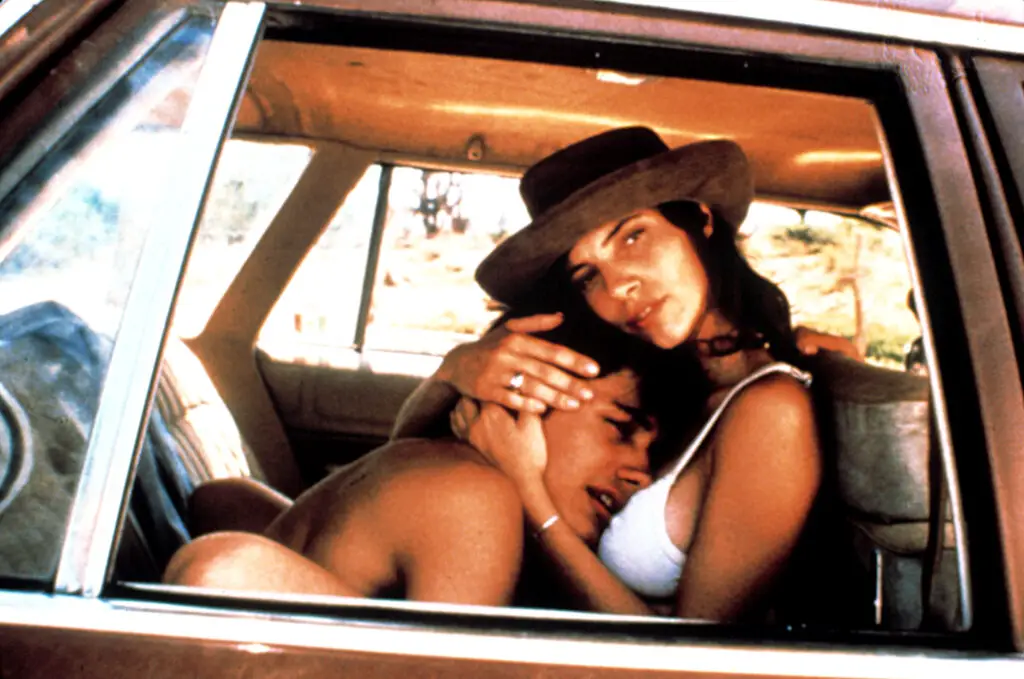
When Y Tu Mamá También was released in 2001, it became an instant classic for many young Latinos. Directed by Alfonso Cuarón, the film follows two teenagers, Julio and Tenoch, as they embark on a road trip across Mexico, discovering more about themselves, their relationships, and the world around them. While it touches on themes of coming-of-age, friendship, and sexual exploration, the film also delves into class and socio-political divides in Mexican society, making it a great film for both entertainment and thought-provoking discussion.
What made Y Tu Mamá También particularly memorable was its raw and honest portrayal of youth. The film didn’t shy away from showing the complexities of relationships, love, and the challenges of adulthood. For families, watching Y Tu Mamá También sparked interesting discussions about growing up, the changing dynamics of friendships, and the pressures placed on young people as they navigate their lives. The film’s combination of humor, drama, and social commentary made it a conversation piece for families who appreciated both its entertaining and serious elements.
8. Stand and Deliver (1988)

Stand and Deliver tells the inspiring true story of Jaime Escalante, a high school math teacher in East Los Angeles who defied the odds and helped his students excel in advanced mathematics. The film, which stars Edward James Olmos as Escalante, became an instant classic in Latino households because of its empowering message of perseverance and dedication. Families watched this film as a source of inspiration, especially for young people striving to break through barriers and overcome challenges in their education.
Escalante’s dedication to his students, despite the challenges they faced, made him a heroic figure in the Latino community. The movie wasn’t just about academics—it was about believing in oneself and the power of education. For many families, Stand and Deliver served as a reminder of the importance of hard work, ambition, and community support. The movie’s impact reached beyond the screen, becoming a cultural touchstone that motivated countless young people to pursue higher education and dream big, no matter the obstacles in their way.
9. El Norte (1983)
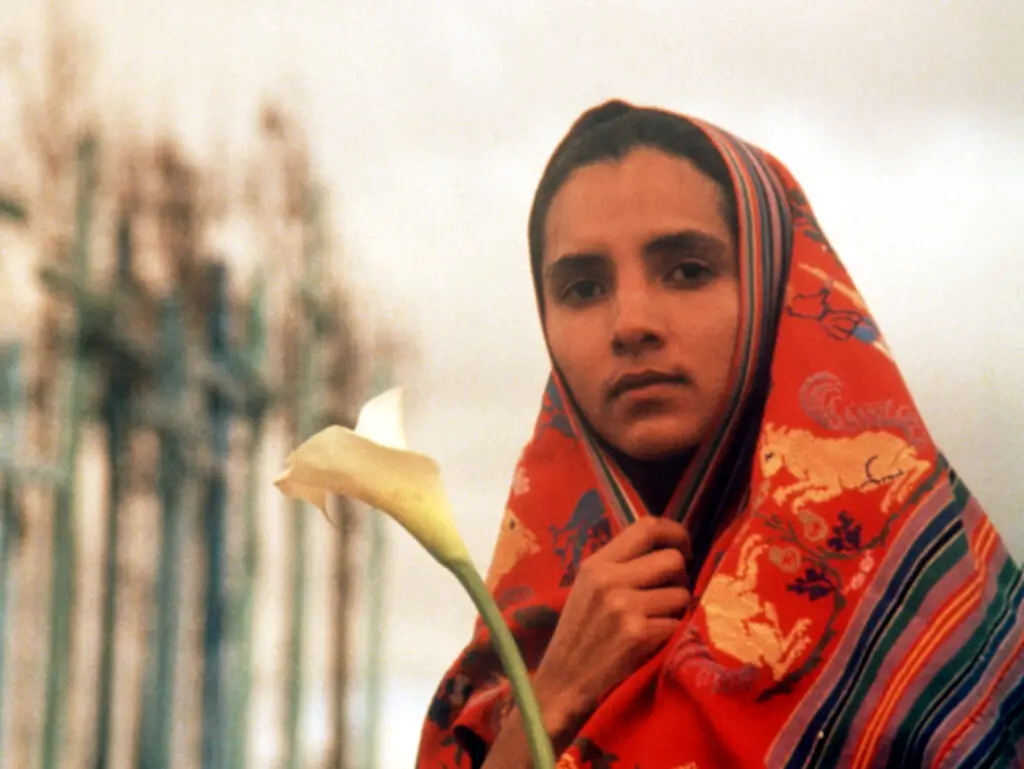
El Norte is a powerful film that tells the story of two indigenous Guatemalan siblings who flee to the United States to escape political violence. Their journey represents the struggles of many immigrants who leave behind everything to seek a better life. For Latino families, El Norte was more than just a film—it was a reflection of their own stories of migration, sacrifice, and the pursuit of the American Dream. It was a film that addressed the complexities of the immigration experience, especially for those fleeing violence and oppression.
The emotional depth of El Norte was unmatched, as it portrayed the hardship and resilience of its characters in a way that many viewers found deeply relatable. Watching the siblings navigate the challenges of crossing the border, finding work, and adapting to life in the U.S. struck a chord with immigrant families who had experienced similar struggles. The film became an important conversation starter, especially about the emotional and psychological toll of leaving home in search of a better future. El Norte was both an eye-opener and a source of solidarity for many families who understood the sacrifices involved in building a new life.
10. Zoot Suit (1981)
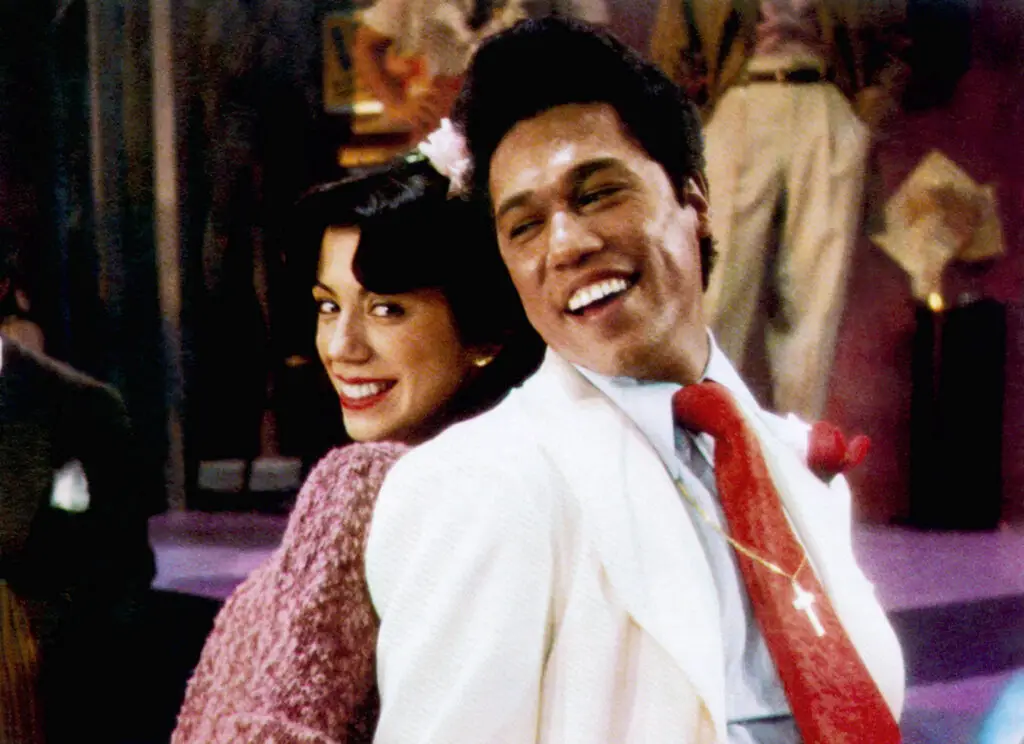
Zoot Suit is based on the true story of the Zoot Suit Riots, a series of violent clashes between Mexican-American youths and U.S. servicemen during World War II. The film, directed by Luis Valdez, is a poignant exploration of racial discrimination, cultural identity, and the fight for justice. With its vibrant characters, music, and themes, Zoot Suit became a cultural touchstone for Latino families, particularly in the way it highlighted the struggle for equality and recognition in a society that often marginalized them.
What made Zoot Suit especially significant for families was its ability to blend history with entertainment. The film’s theatrical style and colorful costumes made it both visually stunning and emotionally powerful. For many viewers, Zoot Suit became a way to discuss race, identity, and the ongoing fight for social justice in a manner that was accessible and relevant. It wasn’t just a history lesson—it was a reminder of the resilience of Latino communities in the face of adversity, making it a film that sparked important conversations during family dinners.
11. The Milagro Beanfield War (1988)
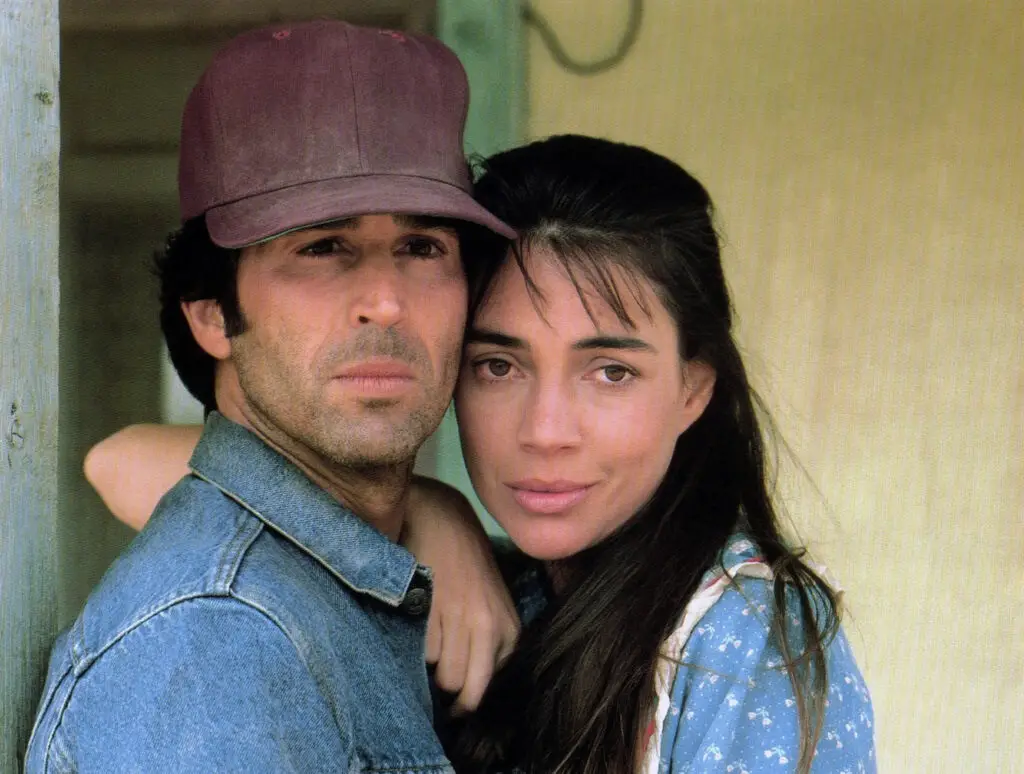
The Milagro Beanfield War is a charming and thought-provoking film that captures the essence of community, land, and resistance in a small New Mexico town. Directed by Robert Redford, the film tells the story of a struggling farmer, Joe Mondragon, who begins a battle over water rights with local developers, triggering a series of unexpected events in the community. The movie quickly became a classic for many Latino families because of its exploration of power, culture, and the importance of standing up for one’s beliefs. The themes of social justice, land rights, and collective action resonated deeply with audiences who saw their own struggles reflected on screen.
The film’s combination of humor and drama made it both entertaining and meaningful. What stood out for families watching The Milagro Beanfield War was the way it depicted the Latino community’s resilience in the face of adversity. The characters, while quirky and lovable, were also symbols of defiance against the dominant forces trying to take away their rights and heritage. For many families, this was a film that sparked conversations about the challenges that communities of color often face, particularly in the context of land ownership and environmental justice. It also served as a reminder of the importance of unity and standing up for what is right, making it a beloved Sunday movie for both its entertainment value and its deeper social message.
12. Fools Rush In (1997)

Fools Rush In is a romantic comedy that explores the cultural differences between a Mexican-American woman and a man from a more traditional Anglo-American background. The movie follows the couple as they navigate their differences, family expectations, and ultimately, their love for one another. The film’s lighthearted humor and touching moments made it a go-to for families who appreciated seeing the complexities of love and culture play out on screen.
What made Fools Rush In particularly special was how it dealt with the collision of cultures in a humorous yet sincere way. Many families found themselves laughing at the cultural misunderstandings, while also nodding in recognition at the very real struggles that come with blending different traditions. For Latino families, it offered a comedic but honest portrayal of the challenges of navigating multiple cultural identities while still holding on to family values. It became a beloved film for discussing relationships, family dynamics, and the nuances of cultural assimilation during Sunday dinner.
